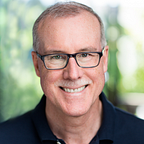The Thing We Fear: Summary
How to save lives and end this social crisis
Living excessively for the present harms us now and wrecks our future.
A new mindset and personal courage can restore our damaged society.
This social crisis will end when we decide it will end — and not a minute sooner.
The on-going social crisis since March has turned our personal worlds upside down and converted an “old normal” into an “unnormal”, a surreal place where we clumsily try to live alone in an unforgivingly connected society.
The crisis has turned us radically inward in so many ways: we seldom venture away from home, we obsess about our health like hypochondriacs, and we avoid close contact with anyone but our closest family and friends.
We also live excessively in the present, another way in which we turn ourselves away from normality, that time just passed when we calmly and deliberately planned for the future.
The evidence for our obsession with the present, and our rejection of the future, is all around us.
It can be seen in the uncertainty created by erratic pandemic policies, in the costs of not properly educating our children, in the economy where investment for the future has plunged, in our often strangely quiet streets, offices and public places, and most tragically in the health care system, where people are being harmed and lives are being lost.
So, our urge to steal time and attention from the future and park it today is damaging our children, our livelihoods, our physical health, and even our mental well-being. It is unintentionally killing people, in a misguided effort to save lives by trying to directly control the virus.
This is why it is absolutely essential to end this unnormal period as soon and as completely as possible.
While most of us are stuck in the present, a few people are looking ahead to the end of the pandemic and they have made predictions as to the timing and reasons for such a termination.
As can be seen in the full article, there is a vast range of opinions on calling the end of the pandemic, from next year to forever. Unfortunately, no one is suggesting an end any time sooner.
But is this all spectacularly missing the point?
Isn’t the deeper issue our response to the pandemic, rather than the pandemic itself?
After all, the response has affected more people, had greater damage, and is likelier to have longer-lived consequences.
The more fundamental and important issue is social, not medical or biological.
Therefore, we need to forecast the end of the social crisis, not the underlying pandemic. But how can anyone predict a social phenomenon that includes billions of people and their unknowable reactions and behaviors?
As an alternative to prediction, since it is destined to failure, we can instead set out the necessary conditions for an end to the social crisis.
A minimal list includes:
· Interacting normally with people,
· Not constantly monitoring our health,
· Assessing risk in proportion to its importance,
· Arguing for change through open discussion,
· Winning the political argument for change,
· Restoring freedom of association,
· Ending overly restrictive public policies, and
· Opening borders to movement.
You will immediately notice that there is a catch-22 to this list: the elements are identical to the conditions that describe our normal behavior, that is, the world prior to 2020.
In other words, the end of the social crisis is behavioral. We need to act normal and that determined change in mindset is enough to take us back to our preferred state of living. Act normal to be normal.
This is (massively) easier said than done.
Taking this perspective, it is evident that there is no one who will stand up one day and announce that the pandemic and associated social crisis are over. No scientist, no expert, no leader, no messiah has the power or knowledge to pull that off.
This is a collective event and so we have to persuade our fellow citizens and pressure our politicians to change their ways.
We need to master our fears and choose to live free again. That day is when the social crisis will end.
The full article can be found here.
